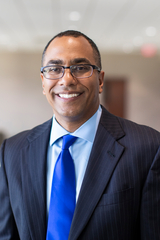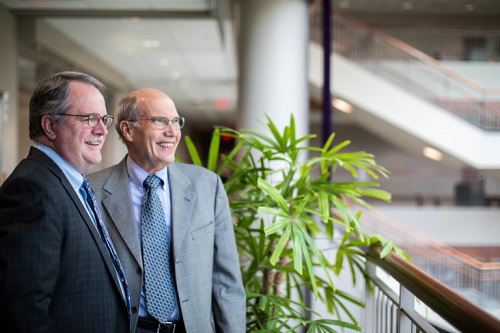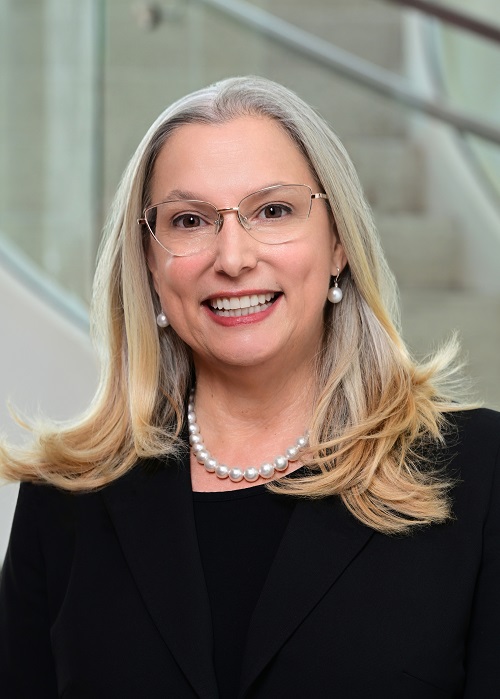By: Dr. Ann Sinsheimer, Professor of Legal Writing, University of Pittsburgh School of Law
Dr. Omid Fotuhi, Research Psychologist, Learning Research and Development Center, University of Pittsburgh
Andrele St. Val, Assistant Professor of Legal Writing, University of Pittsburgh School of Law
Ciara Willett, Senior Data Scientist, Nielsen
Introduction
For years, scholars have been calling for a change to legal education—to modernize and humanize the system, to make it more inclusive, and to help students maintain balance. Previous efforts within the law community have used a top-down approach to address these concerns, in which interventions and changes are implemented without consulting the students affected by these policies. At the University of Pittsburgh, through the support of researcher partnerships and grants, we have developed a novel approach—listening to and highlighting students’ experiences while implementing a series of targeted, tailored, and well-timed psychological interventions that emphasize their voices and concerns.
First and foremost, our goals are to improve the law school student experience and foster an environment that supports their academic and professional growth. Additionally, we believe that there are potential ancillary effects across the institution (e.g., admissions, student retention, alumni engagement). In the rest of our post, we describe the origins of The Fostering Resilience and Engagement Project, what we have learned thus far, our future directions and goals, and our recommendations for other law schools or professional programs that wish to adopt a similar model.[i]
Origins of The Fostering Resilience and Engagement Project
While teaching Legal Writing to first-year law students, Dr. Sinsheimer began to notice a pattern. In August, the first-year law students are full of enthusiasm. By the end of October, many are full of anxiety and concerned about exams, worried that law school was not the right choice, and unsure whether their grades will be good enough to find a summer job. Some students feel a tremendous pressure that their first-year performance means “everything” to their future as lawyers; other students seem to regard critical feedback as a statement of their ability instead of an opportunity for growth. If the students fail to perform at the level they expect of themselves, they begin to doubt their ability to practice law. By the end of the year, more than a few students are disenchanted with the process of legal education—a common experience throughout U.S. law schools. Troubled by this pattern, Dr. Sinsheimer looked for ways to make her students more resilient and the process more humane.
In 2018, she met Dr. Omid Fotuhi, a research psychologist at the University of Pittsburgh. Dr. Fotuhi was researching psychological interventions designed to help students to adopt “adaptive mindsets”, specifically by studying how students deal with uncertainty around belonging in new circumstances. Having worked primarily with the undergraduate population, Dr. Fotuhi was interested in how graduate and professional school environments might differ. Together, we began our project at Pitt Law. We were also fortunate to recruit others, specifically Professor Andrele St. Val and our Data Scientist Ciara Willett.
Understanding the Problem
Our first step was to understand the law students’ perspectives of their experiences. We began with focus groups and follow-up surveys distributed to students from each year in the law program. Approaching students to discuss and process their experiences was novel for them, and a sort of intervention itself. One student wrote: “I’ll never be able to fully express the impact the anonymous class exercise of sharing our law school concerns had on me. It completely changed my sense of belonging and outlook on law school for the better.”
Several themes emerged from these initial discussions, and we found that many struggles in law school were shared among first-, second-, and third-year students. For example, many students felt that they didn’t measure up to the “right” law student profile, and several discussed facing an atmosphere of hostile competitiveness. However, our students also expressed “pluralistic ignorance” in their responses—an experience similar to imposter syndrome in which someone mistakenly feels that they are the only one struggling.
Many of the responses echoed features or ‘symptoms’ of a “fixed mindset”— believing that one has a fixed amount of intelligence or talent, and that there is no opportunity for change or growth. Researchers have found that a fixed mindset approach to learning can lead to unproductive competition, uncertainty about belonging to a community or institution (e.g., law school), disengagement, discouragement, apathy, and quitting. In contrast, the adoption of a “growth” mindset—believing that one’s abilities can be developed and that everyone can grow and succeed—is associated with resilience, persistence, and greater abilities to adapt to new situations and deal with new challenges.
Early on in this project, considering students’ mindsets within a “growth” or “fixed” framework helped us to identify appropriate interventions and place students’ experiences in context. We have since learned, however, that this binary perspective is too limited to fully capture our students’ experiences, which involve the following: mindsets that relate to belonging or uncertainty around belonging; one’s sense of relevance and meaning; one’s identity and value in the world; and self-management and performance.
Belongingness Intervention
Our next step was to design a belongingness intervention aimed at fostering greater resilience and engagement in our students. Specifically, we sought to target factors that most powerfully impact students’ perceptions about their potential within the Pitt Law program. The most effective interventions address factors that include both internal qualities (e.g., beliefs, attributions) and external qualities (e.g., messages in the environment), especially when those interventions are tailored to a specific group.
We designed the interventions based on what we learned about the Pitt Law student experience and prior studies that have targeted belonging uncertainty in students from underrepresented populations. These interventions were found to influence performance and well-being long after the intervention was delivered. Our research revealed that, while some students did struggle with a fixed mindset about their potential and abilities, these beliefs did not seem to stem from their pre-existing experiences or backgrounds. Rather, students consistently brought up forces within the law school environment that shaped their beliefs about their potential and put their sense of belonging into question. Therefore, we created a customized intervention program that primarily addressed students’ uncertainties about belonging, while also addressing institutional elements that impacted their growth mindset.
Our Design
We intentionally incorporated the intervention into Pitt Law’s two-semester legal writing curriculum because the small class size, frequency of student contact hours, and opportunity for reflection make this course and the professors well suited for this work. We also planned the timing of the interventions to occur at the beginning of the second semester, after students received their first semester grades in law school and when their anxiety levels are high.
Because our study is the first to empirically test the efficacy of a belongingness intervention for law students, we wanted to compare different methods of delivery. Each course section was assigned to one of three conditions: an in-person version (conducted via Zoom during the pandemic) that involved group discussions facilitated by an expert or trained facilitator during class time, an online version that students completed independently, or a control/comparison group.
The in-person intervention involved group discussions led by Dr. Fotuhi and followed a predetermined structure. First, Dr. Fotuhi gave an introduction that normalized common challenges among students. He also emphasized that the law students were the current foremost experts on the law student experience, and that their highly valued insights would be used to help future students during their transition to law school—a sophisticated psychological strategy designed to reduce the defensive disengagement that often comes with serving “helpful” information to students in need. Second, Dr. Fotuhi gradually constructed an environment of disclosure, starting with an icebreaker to help students feel more comfortable sharing. Third, the students wrote down three good and three bad experiences from law school. They were then asked to share more about these experiences and what advice they would give to incoming students. During this elaboration portion, Dr. Fotuhi introduced language that humanized the student experience (e.g., the notion of ‘pluralistic ignorance’) and encouraged students to reframe their viewpoints from a different perspective. For example, in one session, a few students talked about how their own unique training and prior experiences did not align with what a typical or ideal Pitt Law student might look like. Rather quickly, nearly all the students shared having had the same experience, which led to the realization that there is no one “right” profile for the typical Pitt law student. With this gained insight, the entire class seemed to have a collective sigh of relief as they realized that their uniqueness was actually a point of commonality with their peers.
The main difference in the online intervention is that students completed the exercise individually; however, we still wanted to emphasize the shared nature of experiences in law school while asking students to reflect on their own experiences. To this end, students read a set of anonymous responses from our initial focus groups and surveys, which described other law students’ experiences and struggles. Then, the students were asked to write a paragraph that reflected on their own experiences in law school.
Our Findings (Thus Far) & Future Directions
We evaluated the impact of the belongingness intervention and compared the two different methods of implementation (in-person versus online) with surveys distributed to law students at three time points in their first year: a baseline survey during orientation (August); a post-intervention survey at the start of their second semester (January); and a final follow-up survey at the end of the second semester (April). So far, we have analyzed the results of our interventions with three first-year cohorts (2019, 2020, and 2021) and are currently analyzing our 2022 cohort data.
In the baseline and post-intervention surveys, we asked students to talk about their experiences during the transition to law school. Students voiced concerns about time management, whether they would be able to keep up with the workload, (e.g., “making the adjustment to having constant work and stress”), and the competitive environment (e.g., “Law school is a game of who can do the most work without burning out”). Another common theme was feeling inferior to other students, which sometimes held them back in classes (e.g., “My constant worry is thinking I don’t compare to those who are here and how their experiences are better than mine. I am worried to raise my hand in class, afraid that I may say something dumb and be judged for it or will be forever labeled as ‘that girl’”).
A main goal of our belongingness intervention was to provide support to students during a critical period of law school—when they receive their first semester grades. The strong majority of students reported that they benefited from hearing other students’ stories and found similarities with their own experiences (e.g., “It showed that everyone faces difficulties at first. A lot of people said that with time, it gets better. This seems to be a generalized experience and is reassuring.”).
Despite qualitative reports that the intervention was impactful, it was difficult to identify stable effects of the intervention across the three cohorts using our quantitative measures. One potential reason for this is because the three cohorts had vastly different experiences due to the COVID-19 pandemic. Second, our measures may not have adequately probed the success of the interventions. Throughout this process, we have found that it is difficult to identify measures that capture the success of these interventions. Typically, mindset interventions result in subtle but meaningful changes in attitude over time, which may not be fully captured by quantitative measures in a survey. Additionally, retention rates at Pitt Law are generally high (with or without our interventions), so something like retention cannot be used as an effective measure of success. We also continuously modified our surveys in response to what we learned from students’ experiences, and the unique situations that our students were facing (e.g., changes to the grading curve at Pitt Law; the COVID-19 pandemic). These changes came at the cost of being able to track students’ responses to specific questions over time.
When collapsing the quantitative data across the three interventions, we found that self-reports of mental and physical health were quite low at the beginning of the second semester (around the time of the interventions, when students are getting their first semester grades), and further declined by the end of the second semester. These trends are quite concerning and validate the need to find interventions that successfully support students throughout law school. For the 2020 cohort, who faced the additional challenges of COVID-19 and online learning, we found that their beliefs about their ability to handle future challenges—an integral part of law school—declined throughout the second semester.
Despite the decline in mental and physical health that students self-reported, as the year progressed, our mindset survey data showed that students more strongly adopted a growth mindset (e.g., “You can grow your basic intelligence a lot in your lifetime”). This was a key goal of our belongingness intervention, and we were somewhat surprised to find that the control group also showed an increased growth mindset throughout their first year. Furthermore, although student’s individual growth mindset improved, their beliefs about the institution’s growth mindset worsened throughout the year; even if changes happen at the individual level, an institutional fixed mindset could impede progress.
Future Directions
Based on our conversations with law students and the results of our research, we remain convinced there is an extant need for change. It remains unclear whether our belongingness intervention is the ideal method. As previously discussed, one of our concerns is that our measures do not fully capture the success of our interventions. In the past year, using what we have learned from the first three rounds of data collection, we conducted a final test of our belongingness intervention. In this test, we changed the timing of our approach by implementing the intervention earlier in the first semester. Previously, we implemented the intervention during a period of great stress for students, when they were about to get their first semester grades; we are excited to learn whether adjusting the timing to occur earlier in the year—so that students have more time to adopt a growth mindset—has any impact. We do not expect to find that our intervention can solve all problems for all students—we may need to make considerable modifications (like continued interventions for the second- and third-year students) or adopt a new type of mindset intervention entirely.
Aside from an intervention for 1L students, we are actively engaged in facilitating other changes that can support students throughout their law school experience. We have recorded open-ended conversations with multiple Pitt Law students (2Ls, 3Ls, and recent graduates) about challenges they experienced in law school and how they overcame them. These conversations provided students with an opportunity to reflect upon their transition to law school and frame their experiences in terms of success. We plan to use these recordings to encourage student resilience—either distributed as part of a course curriculum or brief clips that are distributed at significant times throughout the school year (e.g., orientation, when students receive grades, when students are in the process of applying for summer positions). We have also begun conducting more interviews with faculty to convey that they should be first and foremost concerned with supporting students.
There must also be change at the institution level. Last year, we worked with 2L and 3L students to analyze students’ perspectives about the grading curve. A strong majority (74%) of students were in support of abolishing the mandatory curve—many students reported that the imposed curve had negative effects on their mental health and motivation, and that it contributed to a culture of hostile competitiveness. The administration, when made aware of the students’ perspective, brought the students’ concerns to the faculty, who subsequently replaced the mandatory curve with a more equitable grading policy based on a suggested mean. In our most recent survey, we found that among 1L students, support for abolishing the curve was negatively correlated with feeling a sense of belonging within the law school community and beliefs about one’s ability to handle future challenges and keep up with work demands. Not only do these findings echo our concerns about how institutions themselves can influence students’ mindsets, but we also found that students with a stronger individual growth mindset were more in favor of abolishing the curve.
This year, we received a grant to begin expanding our work with faculty. We recently conducted our first workshop with Pitt Law faculty in which we introduced the concept of belonging, growth mindsets, and how to make changes in the classroom to create an environment that fosters a sense of belonging, resilience, and engagement.
Recommendations & Final Conclusions
Over the past few years, we have learned an incredible amount from simply asking students about the challenges and struggles that they face in law school. Our hope is that other law schools and professional programs start to adopt similar programs and initiatives in their own spaces. Asking students about their experiences—instead of guessing—will reveal unexpected concerns and opportunities for growth within a program.
We encourage any interested institutions to reach out to us—we are happy to share what we have learned and are eager to collaborate with other schools. Given the novelty of this work, establishing a consortium or collective of interested programs will be instrumental in sharing resources and findings. As more schools join our efforts, our knowledge about effective interventions and policies will continue to grow. Furthermore, conducting research in professional programs is inherently difficult because of limited sample sizes; coordinating our efforts and sharing data will improve our efforts to understand and improve the graduate student experience.
More generally, we hope that this work encourages a student-focused approach to improving their experiences in professional and graduate programs. The student will always be the leading expert regarding the student experience—their insight has proven invaluable throughout our project. Additionally, we caution that these conversations with students should be ongoing over the years, and similar endeavors must be dynamic and adapt to the changing needs of students.
If you are interested in collaborating with us or have questions about our work, please email Ann Sinsheimer at ans24@pitt.edu.
[i] This work is explained in part in Ann Sinsheimer & Omid Fotuhi, Listening to Our Students: Fostering Resilience and Engagement to Promote Culture Change in Legal Education, 26 Legal Writing 81 (2022).


From Left to Right: Dr. Omid Fotuhi, Dr. Ann Sinsheimer,
Professor Andrele St. Val, Senior Data Scientist Ciara Willett
















